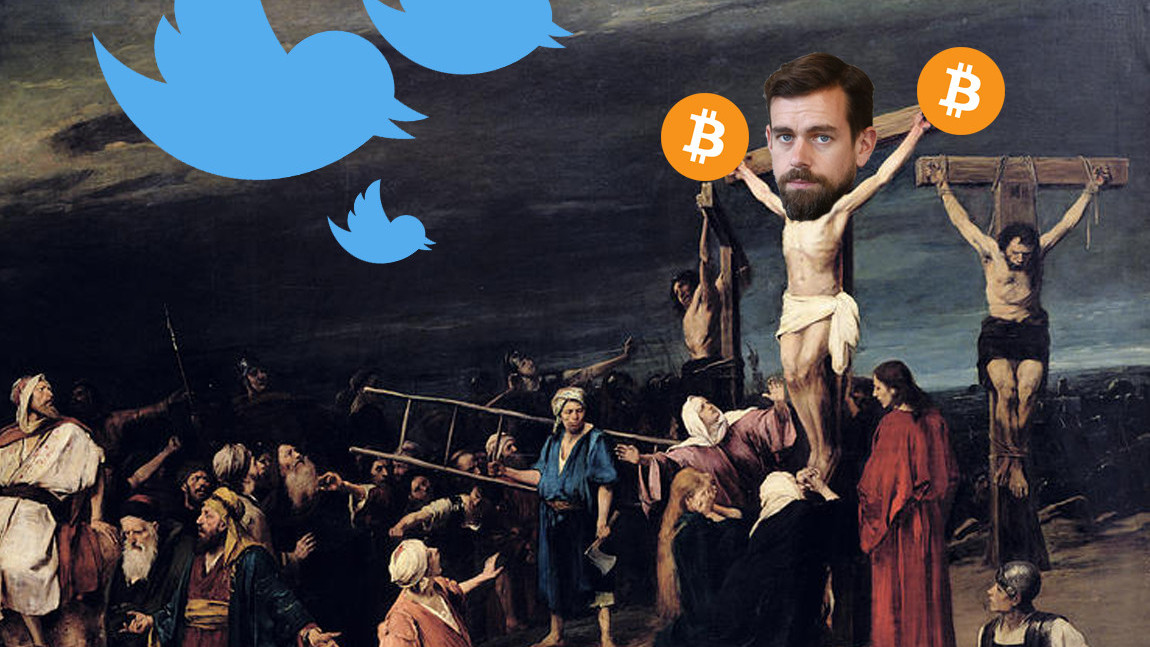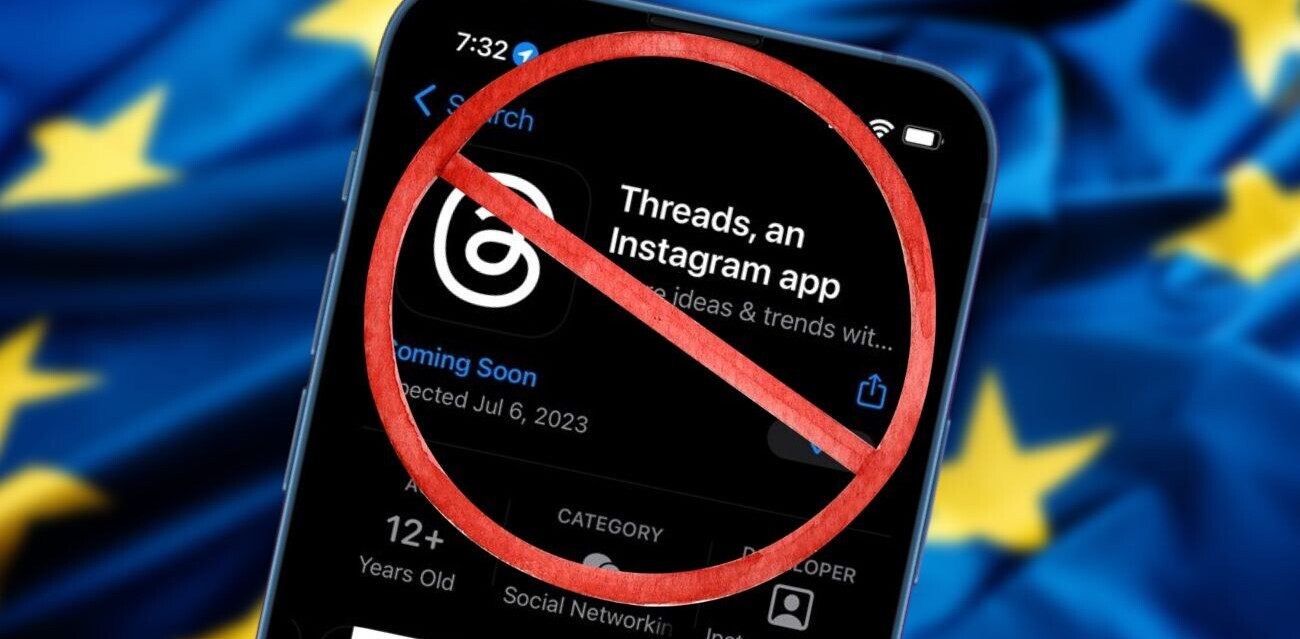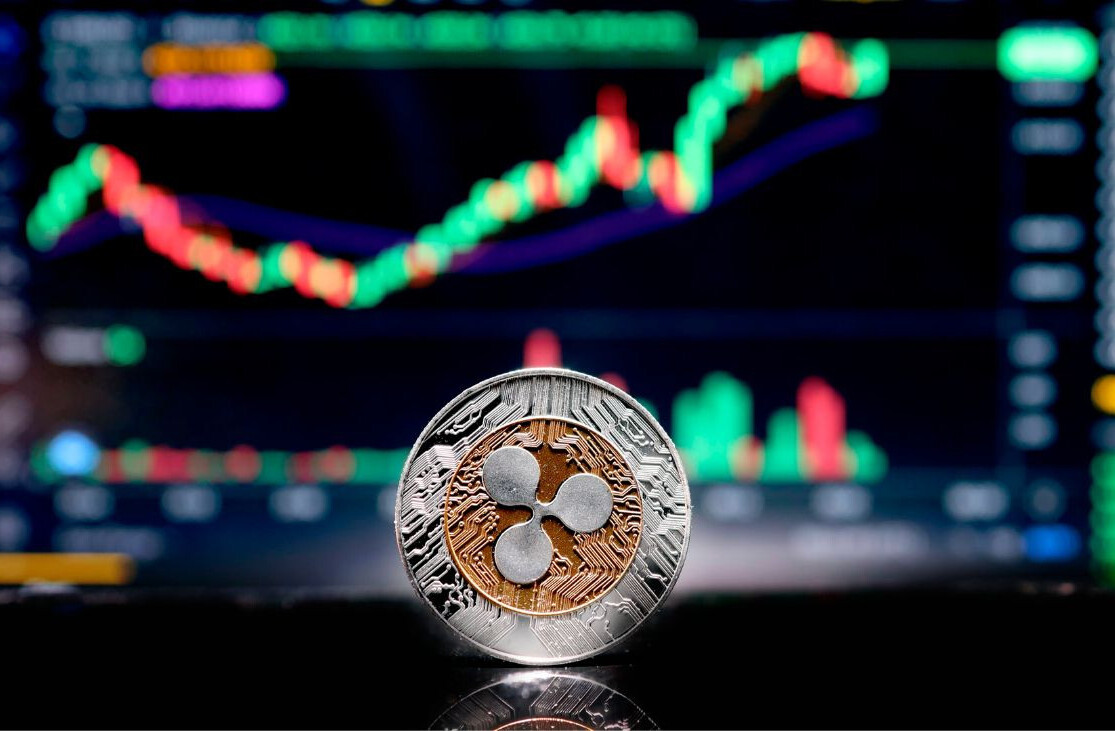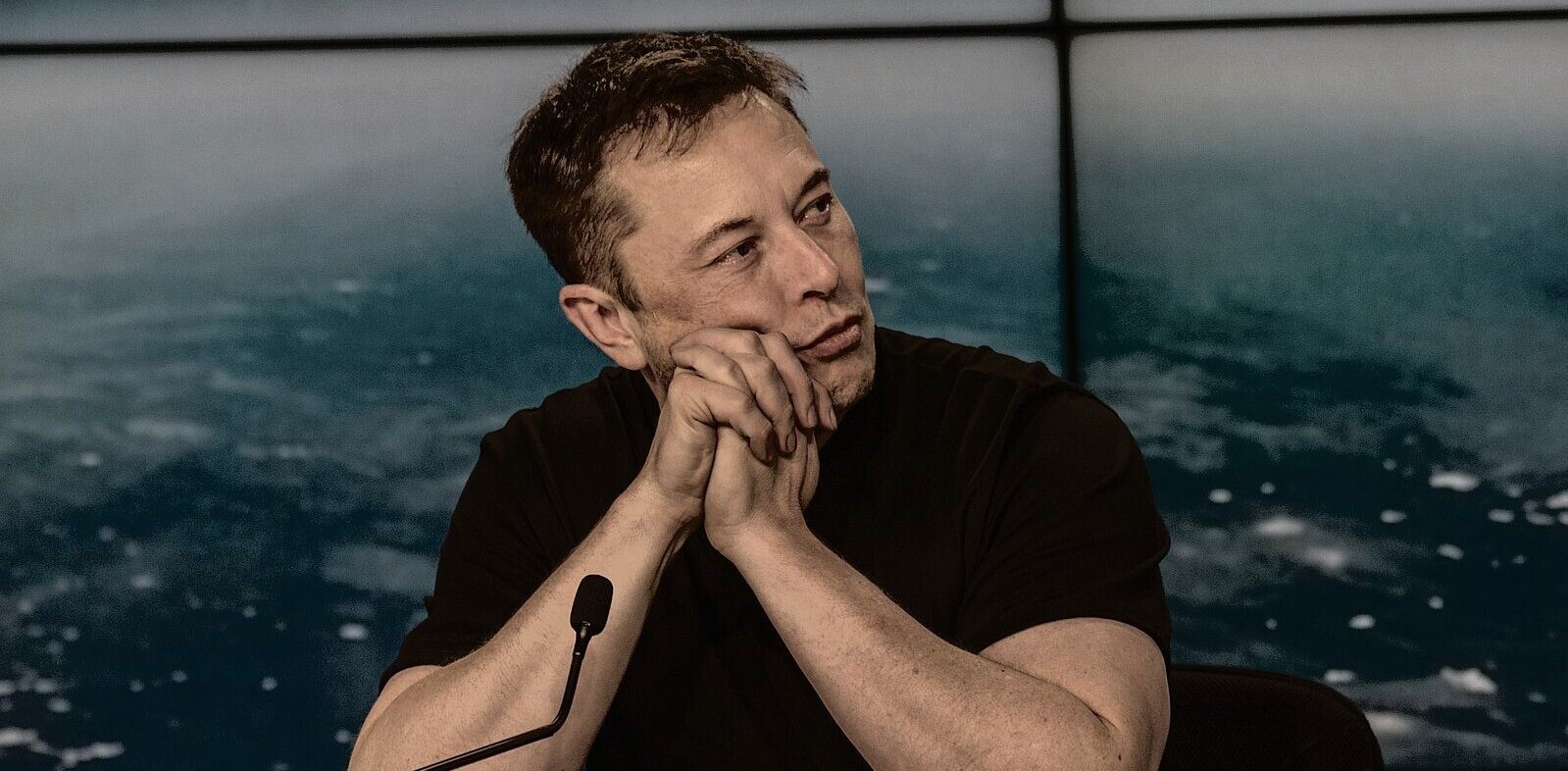
Blockchain has a new unexpected hero: Twitter’s Jack Dorsey.
Although up until recently the cryptocurrency community would routinely grill Dorsey over Twitter’s notorious Bitcoin giveaway scam epidemic, the micro-blogging service’s chief has found a new fandom among staunch Bitcoin supporters; and it all began on the Joe Rogan’s podcast, The Joe Rogan Experience.
Following a heated backlash from free speech activists, Dorsey embarked on an unusual podcast media run to discuss Twitter’s code of conduct, its policies on censorship, how those rules are enforced, and how the platform aims to tackle content policing in the future. But all of these matters were overshadowed when Dorsey revealed fascination with decentralized tech and Bitcoin.
“I believe the internet will have native currency.” Dorsey told Rogan. “I don’t know if it’s Bitcoin, [but] I think it will be given all the tests it’s been through, the principles behind it, and how it was created.”
“[Bitcoin] is something that was born on the internet, that was developed on the internet, that was tested on the internet,” he continued, “it is of the internet.”
Just like that, Dorsey became the talk of the (blockchain) town. Indeed, his remarks on Bitcoin swiftly flooded pretty much every blockchain discussion on Twitter – and similarly, cryptocurrency media loudly celebrated Dorsey’s endorsement of decentralized tech.
Unlike stereotypical “blockchain influencers” (blockchainfluencers?) selling unrealistically overhyped visions of the technology, Dorsey surfaced as someone genuinely interested in what Bitcoin and cryptocurrencies can do for the regular internet user right now.
Not only that, Dorsey had already put his money where his mouth is by enabling Bitcoin purchasing on Square’s Cash App (where he also acts as a CEO) in early 2018.
“The reason we enabled the purchasing of Bitcoin within the Cash App is [because] we wanted to learn about the technology,” he said on The Joe Rogan Experience.
“We wanted to put ourselves out there and take some risk,” he continued. “We’re the first publicly traded company to actually offer [Bitcoin purchasing] as a service, we’re the first publicly traded company to talk to the [US Security and Exchanges Commission (SEC)] about Bitcoin and what that means.”
It also seems Dorsey had even bigger plans for Bitcoin and cryptocurrencies though. “We would love to see something become a global currency,” Dorsey continued. “It enables more access, it allows us to serve more people, it allows to move much faster around the world.”
Jack Dorsey: Blockchain’s new torchbearer
Perhaps in an effort to shine even more spotlight on the technology, blockchain and cryptocurrency enthusiasts wasted no time seeking further validation from their newfound leader.
After his appearance at The Joe Rogan Experience, people flocked to Twitter to ask Dorsey about his views on cryptocurrencies other than Bitcoin and his plans to integrate morecoins into the ventures he oversees.
Among other things, the Twitter chief shot down any immediate intentions to expand Cash App’s cryptocurrency lineup with new additions, revealed he has no interest in hodling Ethereum (or any other coin for that matter), and praised Bitcoin for its resilience and strong principles.
Oh, he also took a dig at Bitcoin’s (BTC) eternal rival, Bitcoin Cash (BCH) – a badge of honor every BTC maximalist is proud to wear.
Hell no
— jack (@jack) February 6, 2019
Still though, the moment when Dorsey truly became blockchain’s new torchbearer came when he – both figuratively and literally – took on the Lightning Torch, a new game-experiment powered by the Lightning Network that aims to raise awareness of cryptocurrency payments.
The experiment had already drawn the the attention of Bitcoin enthusiasts, but Lightning Labs CEO Elizabeth Stark told CoinDesk “the torch really went viral after Jack took it.”
“What I think was so powerful about the torch was that it showed how quickly Lightning enables you to send money, across the internet, anywhere around the world,” she added. “We’re doing to money what the internet did to information.”
More recently, Dorsey revealed the Lightning Network could soon make its way to Cash App too. “It’s not an ‘if,’ it’s more of a ‘when,’ and how do we make sure that we’re getting the speed that we need,” Dorsey said in a chat with Stark on the Stephan Livera podcast. “We don’t think it stops at buying and selling [Bitcoin]. We do want to help make happen the currency aspect.”
But despite all the admiration coming his way, not everyone in the blockchainverse was sold on Dorsey’s devotion to decentralized tech.
A true supporter… or a traitor in disguise?
Dorsey’s newfound popularity in the cryptocurrency world quickly attracted a slew of critics, questioning the motifs behind his support for Bitcoin and the Lightning Network.
For the record, Dorsey is an investor in Lightning Labs, the company developing the Lightning Network protocol.
His name was prominently featured in news headlines when Lightning Labs announced raising $2.5 million in seed funding to fix Bitcoin’s transaction woes in March 2018.
In spite of getting flak over the possible conflict of interest, Dorsey’s vote of confidence to the Lightning Network doesn’t seem misplaced at all.
At a time when the decentralized app (dapp) market is mostly inactive (or used for questionable applications when active), developers have continued to come up with fun, captivating use cases for the Lightning Network. As a reminder, at one point in time Lightning Network-based drawing board, Satoshi’s Place, had more active users than any dapp on the Ethereum network.
Say what you will, whether you’re vested in the Lightning Network or not – there are many reasons to be excited about it.
Blockchain: an industry without a clear direction in sight
Despite a bombastic surge in interest in late 2017 and early 2018, the blockchain sector has struggled to keep the attention of mainstream audiences and find adoption in the real world.
While corporations continue to boast about offering new blockchain-powered (for-profit) services and experimenting with blockchain for all sorts of ridiculous reasons, tech giants are still treading lightly when it comes to rolling out decentralized technology in their own services.
With this in mind, it’s no surprise that the blockchain and cryptocurrency communities have so readily embraced Dorsey’s support for Bitcoin.
But let’s face it: it will take a lot more than a few verbal endorsements to propel blockchain tech to real mainstream adoption – and even Dorsey might lack the influence and resources to do exactly that.
Get the TNW newsletter
Get the most important tech news in your inbox each week.




